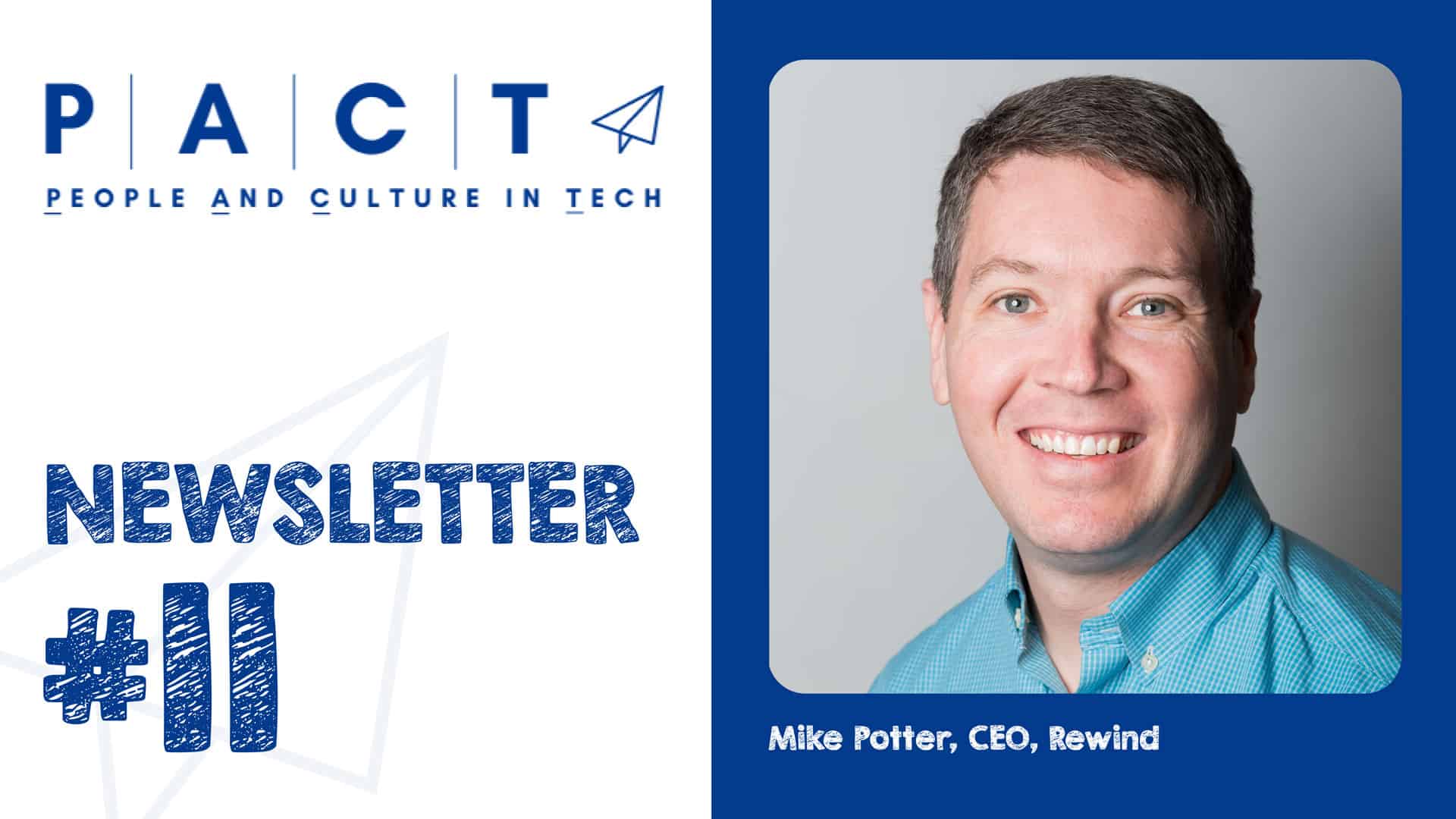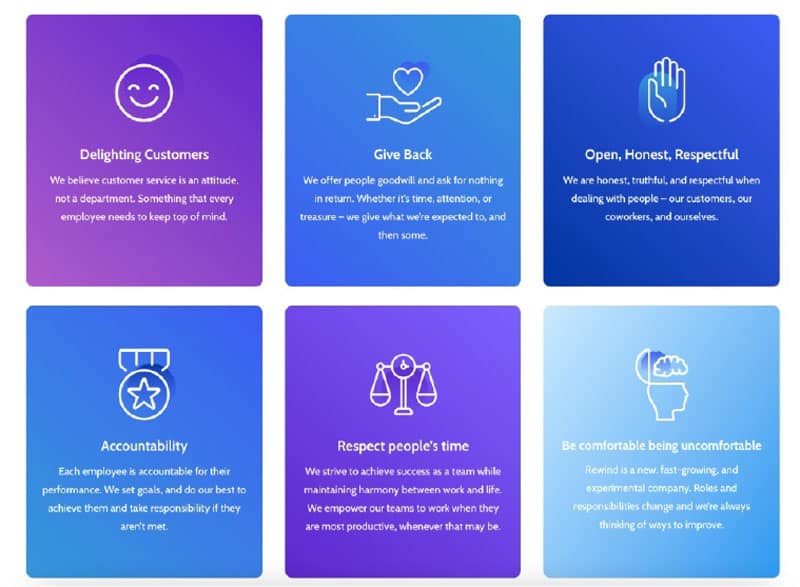How Rewind Scaled its Culture as it Scaled its Customer Base
Jessica Galang

Mike Potter, the CEO of Rewind, believes culture is the driving force behind startup growth. Yet he also doesn’t follow traditional advice to build a certain system when the company was small, and a different system as it grew. Speaking with Tech Talent North, Mike shared how he views culture and how he scaled up Rewind’s culture as the company scaled up its customer base.
Key takeaways:
The best way to assess your culture is to assess your employees’ behavior.
Start with core values then build processes that make it easy for employees to act in accordance with those values.
Culture starts and stops with the CEO.
Traditional startup culture advice is based on how many employees you have. “You need to do X at 10 people, Y at 50 people, and Z at 100 people.” But Mike Potter, the co-founder and CEO of Rewind, never counted how many employees he had when building and scaling the company’s culture. Instead, he took a first-principles approach, starting with core values and building from there with processes and systems. Here’s what that process looks like and how it’s helped culture scale as Rewind tripled its headcount in a year.

Source: Rewind website
Defining culture
Mike began thinking about company culture as soon as he and his co-founder James Ciesielski started the company in 2015. It was a side-hustle at the start, but when the company reached a size where Mike and James could go full-time, the first question was about what kind of company they wanted to build.
“If we’re going to work on this full time, let’s make it the best company we can think of and make it a place you love to wake up and go to work each day,” said Mike.
With that goal in mind, he thought about how he defines and understands culture. For Mike, culture was about two things: personality and behavior.
“A culture is the personality of the company and how employees react and behave,” said Mike. “It can inspire employees and can give them a sense of purpose; knowing what they’re working for.”
Anchoring on core values
Before thinking about “culture” on its own, Mike and James first set up the company’s values. As of 2021, they are:
Delighting Customers
Give Back
Open, Honest, Respectful
Accountability
Respect Each Other’s Time
Be Comfortable Being Uncomfortable
Culture is process in action
Mike and James didn’t develop a culture manifesto because Mike believes that culture is the result of action and living your values – and action in a business comes from a dedicated work process. So the duo focused on building out work processes more than creating something about culture that stood apart from the day-to-day operations of the business.
So far, this approach is working wonders.
Mike shared the example of one value (Accountability) and how the company’s work processes helped people live the value on a daily basis.
“We have goals that we set for all employees, and we expect employees to hit those goals,” said Mike. “But we also work together with people to make sure we are hitting the goals.”
Beyond simply stating goals and telling employees to figure it out, Rewind implemented a 3-step performance process.
The company sets annual goals for the whole organization down to each employee’s contribution.
Every employee has an opportunity to review their work monthly with their manager to ensure they are on track to hit their contributions (and adjust as necessary based on changing circumstances).
The whole business comes together to review performance quarterly and discuss any changes or updates.
“Many processes we have internally reinforce the value of Accountability,” said Mike. “Processes like these are the things I am most proud of as a CEO.”
Changing with the times
While values are often the bedrock of an organization, it doesn’t mean they can’t change with the times. In Rewind’s case, the COVID-19 pandemic forced the company to take a hard look at the intention behind one of their values, originally named “Work Hard, Then Don’t Work.”
The company already set expectations that people wouldn’t need to reply to work emails after work hours or on weekends. But the name of the value - “work hard then don’t work” - implied people had to work for eight hours continuously then stop, said Mike. When the pandemic hit, that no longer worked for people.
“It’s no longer ‘work hard, then don’t work,’” said Mike. “It's work, don’t work, work, make lunch for the kids, work again, be a math teacher for your kid, have dinner, work again, then don’t work. Work is no longer a continuous 8-hour day. People want to do other things to stay healthy, both mentally and physically.”
Realizing that the intention of the value was not to force people to work for eight continuous hours, but rather to encourage people to find balance, the company renamed the value to “Respect Other People’s Time.”
This new naming, said Mike, made it easier to follow the intention of the value while recognizing the real world we’re living in. It also changed behavior for the better, said Mike.
“Now, when you set a meeting, you send documents and an agenda ahead of time so people can come prepared,” said Mike. “People do as much asynchronous work as possible too, which makes it easier working across time zones. Or, if people have to take some time off, they can make it up when it works for them.”
Values should be sticky
Thinking back to when he and James created Rewind’s values, Mike commented that he didn’t think about the type of business they were running at all. In fact, he feels that values don’t have anything to do with what the business does. Instead, he said it’s fundamentally about people, how you want them to act, and the processes you set up to encourage and reward those actions.
“Our vision is not really related to our values or culture,” said Mike. “If we changed what we did as a business, our values and culture would be very similar or even identical.”
BACK








